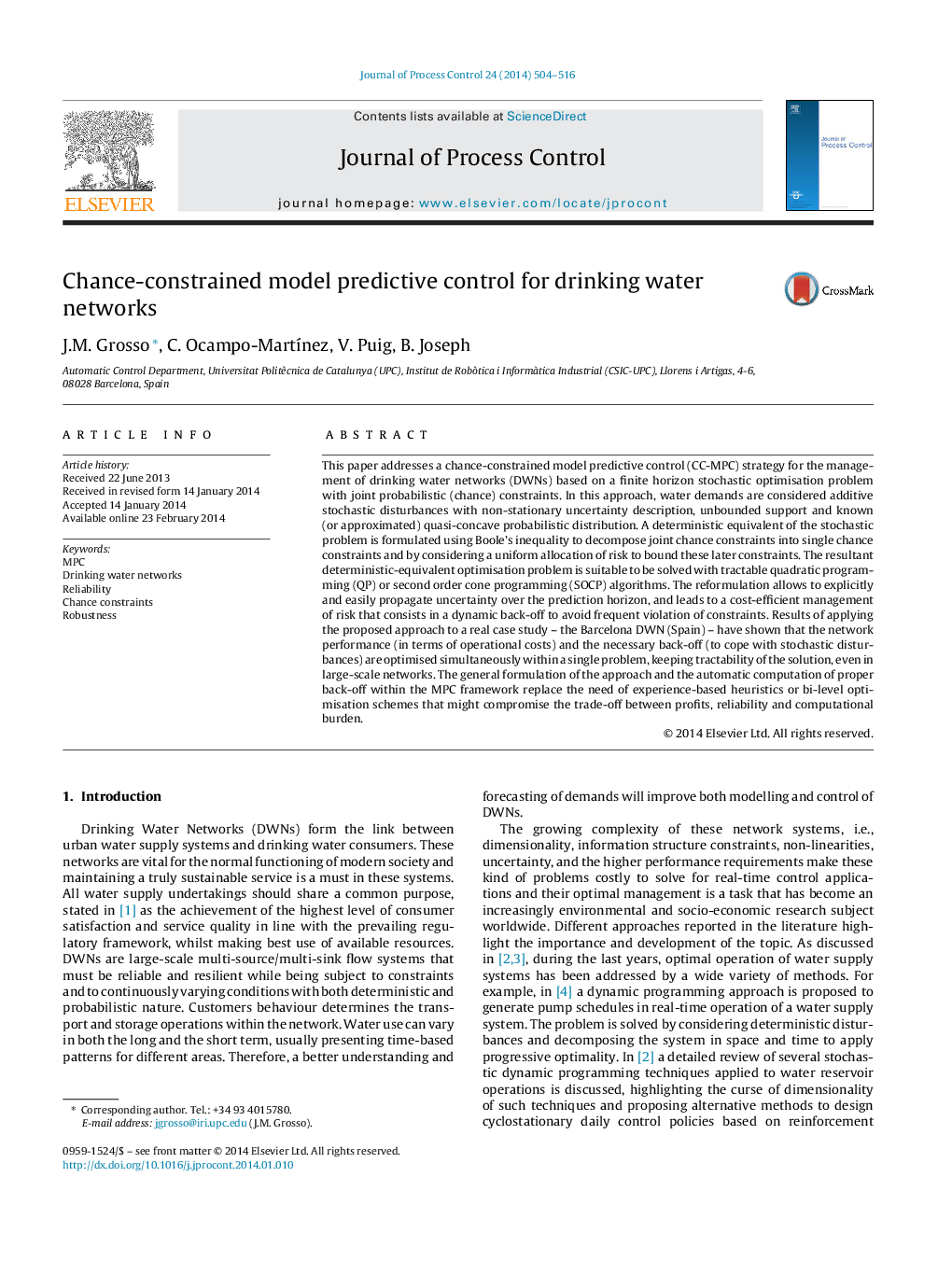| کد مقاله | کد نشریه | سال انتشار | مقاله انگلیسی | نسخه تمام متن |
|---|---|---|---|---|
| 689132 | 889592 | 2014 | 13 صفحه PDF | دانلود رایگان |
• Chance-constrained model predictive control for drinking water networks.
• Decomposition of joint chance constraints using Boole's inequality.
• Reduction of decision variables and explicit propagation of uncertainty.
• Dynamic back-off from constraints leads to a cost-efficient management of risk.
• Economic optimisation, robust performance, and tractability are practical benefits.
This paper addresses a chance-constrained model predictive control (CC-MPC) strategy for the management of drinking water networks (DWNs) based on a finite horizon stochastic optimisation problem with joint probabilistic (chance) constraints. In this approach, water demands are considered additive stochastic disturbances with non-stationary uncertainty description, unbounded support and known (or approximated) quasi-concave probabilistic distribution. A deterministic equivalent of the stochastic problem is formulated using Boole's inequality to decompose joint chance constraints into single chance constraints and by considering a uniform allocation of risk to bound these later constraints. The resultant deterministic-equivalent optimisation problem is suitable to be solved with tractable quadratic programming (QP) or second order cone programming (SOCP) algorithms. The reformulation allows to explicitly and easily propagate uncertainty over the prediction horizon, and leads to a cost-efficient management of risk that consists in a dynamic back-off to avoid frequent violation of constraints. Results of applying the proposed approach to a real case study – the Barcelona DWN (Spain) – have shown that the network performance (in terms of operational costs) and the necessary back-off (to cope with stochastic disturbances) are optimised simultaneously within a single problem, keeping tractability of the solution, even in large-scale networks. The general formulation of the approach and the automatic computation of proper back-off within the MPC framework replace the need of experience-based heuristics or bi-level optimisation schemes that might compromise the trade-off between profits, reliability and computational burden.
Journal: Journal of Process Control - Volume 24, Issue 5, May 2014, Pages 504–516
